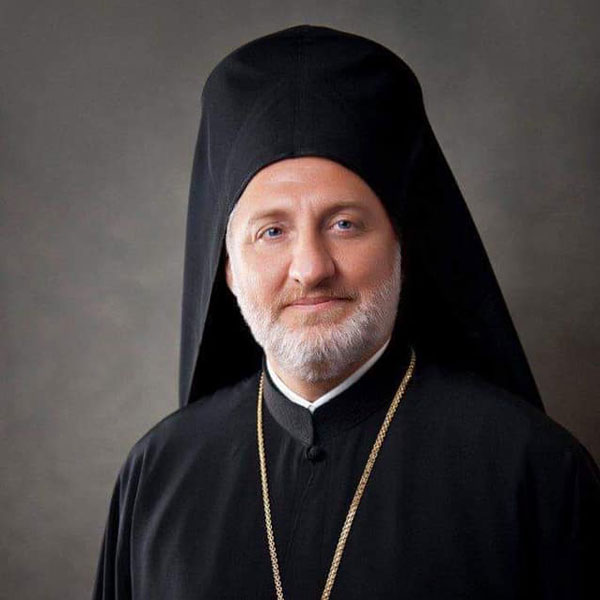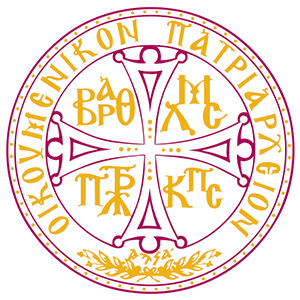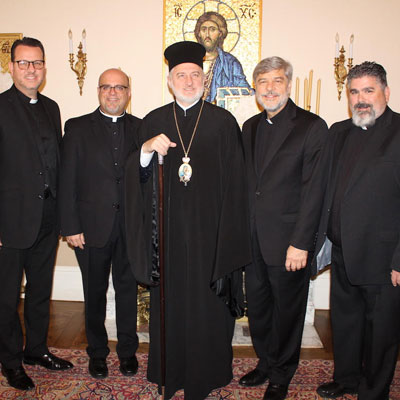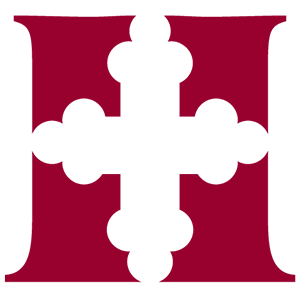Ecclesiastical New Year
For the maintenance of their armed forces, the Roman emperors decreed that their subjects in every district should be taxed every year. This same decree was reissued every fifteen years, since the Roman soldiers were obliged to serve for fifteen years. At the end of each fifteen-year period, an assessment was made of what economic changes had taken place, and a new tax was decreed, which was to be paid over the span of the fifteen years. This imperial decree, which was issued before the season of winter, was named Indictio, that is, Definiton, or Order. This name was adopted by the emperors in Constantinople also. At other times, the latter also used the term Epinemisis, that is, Distribution (Dianome). It is commonly held that Saint Constantine the Great introduced the Indiction decrees in A.D. 312, after he beheld the sign of the Cross in heaven and vanquished Maxentius and was proclaimed Emperor in the West. Some, however (and this seems more likely), ascribe the institution of the Indiction to Augustus Caesar, three years before the birth of Christ. Those who hold this view offer as proof the papal bull issued in A.D. 781 which is dated thus: Anno IV, Indictionis LIII -that is, the fourth year of the fifty-third Indiction. From this, we can deduce the aforementioned year (3 B.C.) by multiplying the fifty-two complete Indictions by the number of years in each (15), and adding the three years of the fifty-third Indiction. There are three types of Indictions: 1) That which was introduced in the West, and which is called Imperial, or Caesarean, or Constantinian, and which begins on the 24th of September; 2) The so-called Papal Indiction, which begins on the 1st of January; and 3) The Constantinopolitan, which was adopted by the Patriarchs of that city after the fall of the Eastern Empire in 1453. This Indiction is indicated in their own hand on the decrees they issue, without the numeration of the fifteen years. This Indiction begins on the 1st of September and is observed with special ceremony in the Church. Since the completion of each year takes place, as it were, with the harvest and gathering of the crops into storehouses, and we begin anew from henceforth the sowing of seed in the earth for the production of future crops, September is considered the beginning of the New Year. The Church also keeps festival this day, beseeching God for fair weather, seasonable rains, and an abundance of the fruits of the earth. The Holy Scriptures (Lev. 23:24-5 and Num. 29:1-2) also testify that the people of Israel celebrated the feast of the Blowing of the Trumpets on this day, offering hymns of thanksgiving. In addition to all the aforesaid, on this feast we also commemorate our Saviour's entry into the synagogue in Nazareth, where He was given the book of the Prophet Esaias to read, and He opened it and found the place where it is written, "The Spirit of the Lord is upon Me, for which cause He hath anointed Me..." (Luke 4:16-30).
It should be noted that to the present day, the Church has always celebrated the beginning of the New Year on September 1. This was the custom in Constantinople until its fall in 1453 and in Russia until the reign of Peter I. September 1 is still festively celebrated as the New Year at the Patriarchate of Constantinople; among the Jews also the New Year, although reckoned according to a moveable calendar, usually falls in September. The service of the Menaion for January 1 is for our Lord's Circumcision and for the memorial of Saint Basil the Great, without any mention of its being the beginning of a new year.


 Thirty years ago, the Ecumenical Patriarchate issued an appeal to Orthodox Christians, urging prayer and care for God’s creation. Since 1989, each year on September 1st, at the inspiration of His All-Holiness Demetrios, the Ecumenical Patriarchate has opened the liturgical year with prayers for all God’s creation. Since 1992, at the exhortation of His All-Holiness Bartholomew, all Orthodox Churches have implemented the same tradition.
Thirty years ago, the Ecumenical Patriarchate issued an appeal to Orthodox Christians, urging prayer and care for God’s creation. Since 1989, each year on September 1st, at the inspiration of His All-Holiness Demetrios, the Ecumenical Patriarchate has opened the liturgical year with prayers for all God’s creation. Since 1992, at the exhortation of His All-Holiness Bartholomew, all Orthodox Churches have implemented the same tradition.
 The ecological activities of the Ecumenical Patriarchate served as the inspiration for theology to advance prominently the truth of Christian anthropology and cosmology, the Eucharistic worldview and treatment of creation, along with the spirit of Orthodox asceticism as the basis for understanding the reason for and response to the ecological crisis.
The ecological activities of the Ecumenical Patriarchate served as the inspiration for theology to advance prominently the truth of Christian anthropology and cosmology, the Eucharistic worldview and treatment of creation, along with the spirit of Orthodox asceticism as the basis for understanding the reason for and response to the ecological crisis.
 The Greek Orthodox Archdiocese of America joyfully announces that His Eminence Archbishop Elpidophoros of America appointed His Grace Bishop Demetrios of Mokissos as the Hierarchal Proistamenos of the St. Photios Greek Orthodox National Shrine in St. Augustine, FL, which falls directly under the auspices of the Archbishop.
The Greek Orthodox Archdiocese of America joyfully announces that His Eminence Archbishop Elpidophoros of America appointed His Grace Bishop Demetrios of Mokissos as the Hierarchal Proistamenos of the St. Photios Greek Orthodox National Shrine in St. Augustine, FL, which falls directly under the auspices of the Archbishop.
 His Eminence Archbishop Elpidophoros met yesterday, August 28, 2019, with the Executive Board members of the Archdiocesan Presbyters Council at the headquarters of the Greek Orthodox Archdiocese of America. This is the first meeting with the Presbyters Council officers since Archbishop Elpidophoros was enthroned as Archbishop of America in June 2019.
His Eminence Archbishop Elpidophoros met yesterday, August 28, 2019, with the Executive Board members of the Archdiocesan Presbyters Council at the headquarters of the Greek Orthodox Archdiocese of America. This is the first meeting with the Presbyters Council officers since Archbishop Elpidophoros was enthroned as Archbishop of America in June 2019.
 The Board of Trustees seeks a dynamic, visionary and strategic leader to serve as President of Hellenic College Holy Cross Greek Orthodox School of Theology. The candidate must be a practicing Orthodox Christian who possesses strong leadership, administrative, fund-raising and institutional advancement skills and will be an effective communicator with the institution’s internal and external constituencies.
The Board of Trustees seeks a dynamic, visionary and strategic leader to serve as President of Hellenic College Holy Cross Greek Orthodox School of Theology. The candidate must be a practicing Orthodox Christian who possesses strong leadership, administrative, fund-raising and institutional advancement skills and will be an effective communicator with the institution’s internal and external constituencies.